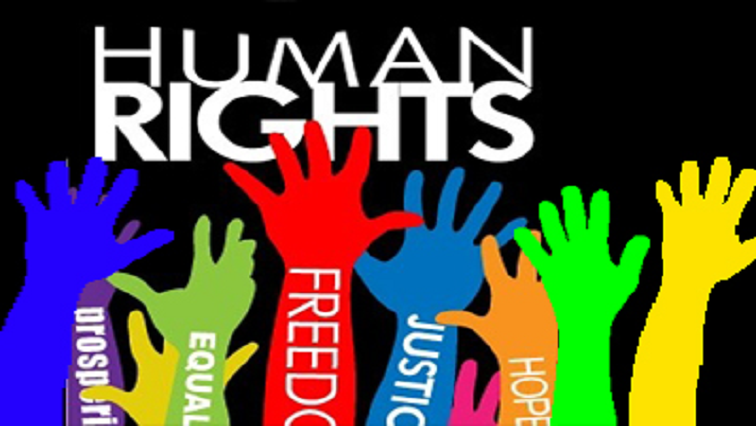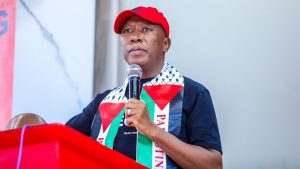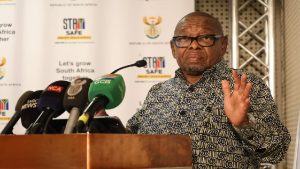Today South Africans gathered in Sharpeville to commemorate the killing of 69 people and the wounding of many others in 1960.
This was when apartheid police opened fire during a peaceful protest against pass laws.
Delivering his Human Rights Day address President Cyril Ramaphosa called for the respect of basic human rights and freedom that belong to every person irrespective of colour, creed or race.
Human rights and freedom belong to everyone until death. They include shared values, including dignity, fairness, equality and respect. The President lamented the massacre of 69 people.
“The Sharpeville and Langa massacres came to symbolise the moral superiority of the anti-apartheid cause. Though lacking the guns of their oppressors, they were determined to stand up for what was right, no matter the cost.”
Calls for Sharpeville Day
Political parties commemorating the 1960 Sharpeville Massacre in the Vaal have objected to the day being known as Human Rights day.
They feel Sharpeville Day would be more appropriate. Those who died protesting the apartheid pass laws were remembered.
#HumanRightsDay is associated with the 21 March 1960 – Peaceful marchers were mercilessly massacred by the apartheid regime. #SharpevilleMassacre pic.twitter.com/SOgVa9LWpQ
— South African Government (@GovernmentZA) March 21, 2019
Parties paid homage to the PAC for its role in the anti-pass revolt.
The EFF says renaming this day to Sharpeville day will remind the nation of its significance. EFF leader Julius Malema says that history should not be distorted.
“Today is not a human rights day, it’s a Sharpville Day; don’t distort the history of black people.”
The rally was a commemoration of those who died in Sharpeville 59 years ago.
At least 69 people were killed by police during a peaceful demonstration when the community raised its dissatisfaction with the apartheid government’s system of pass laws.
The protests on this day were mainly lead by the PAC.
Azapo says it believes not much has changed since 1960. The Azanian People’s Organisation says it is important to remember March the 21st as a number of people died for the liberation of South Africa.
Azapo national chairperson Nelvis Qekema says, “It is very important for us in Azapo to be here today. I remember that Steve Biko himself before he died, he did say and reminded us that a nation that forgets its martyrs will itself soon be forgotten. That is what Steve Biko told us, and through those words we are now being here to remember the sacrifices and the blood that spilled in Sharpeville here in 1960s.”
“There is no human rights day to celebrate”
DA leader Mmusi Maimane says it’s a shame that many South Africans continue to live under dire conditions, with no access to services.
Maimane says there is no human rights day to celebrate because locals are sidelined by those in public office with no jobs for the youth.
While the different events set out to commemorate the heroics of the Sharpeville massacre, parties also took the opportunity to campaign for votes ahead of the elections.
The BLF pleased to see parties united
The Black First Land First (BLF) party says it respects and recognises the role the Pan Africanist Congress (PAC) played on March the 21st in 1960. BLF deputy president Zanele Lwana says many sacrificed their lives to ensure that the people of South Africa ultimately achieved freedom.
“We respect this day as the Sharpeville commemoration to remember those who have sacrificed their lives, to make sure that we become a free people as black people. We respect this day in particular, because it is being erased the significance of this day in the so-called democratic South Africa since 1994. You would know that this day is not in the mainstream described as Sharpeville Massacre Day, it is described as the Human Rights Day.”
Promotion of indigenous languages
There’s been a call for people to embrace their culture and language. Northern Cape premier Sylvia Lucas says having the promotion of indigenous languages as a theme for Human Rights day is a victory for all South Africans.
She’s also revealed that efforts are underway to get more indigenous languages in schools.
Most Khoisan languages are either endangered or critically endangered. There are efforts to revive them. Nama, for example, is now taught at two schools in the province.
In KwaZulu-Natal, the plight of farm workers came under the spotlight during KwaZulu-Natal’s commemorations
at Belgrade, near Phongolo.
The government promises to deal decisively with those behind human rights violations on farms.
In Limpopo, people descended on Mokgehle village, outside Bochum, to celebrate the day.
Cultural music groups conveyed the message in their indigenous languages.
The human Rights commission has encouraged people to use their mother tongue when visiting government institutions for services.
Human Rights Commission’s Victor Mavhidula says, “People must take pride of their languages and must not feel inferior.”






